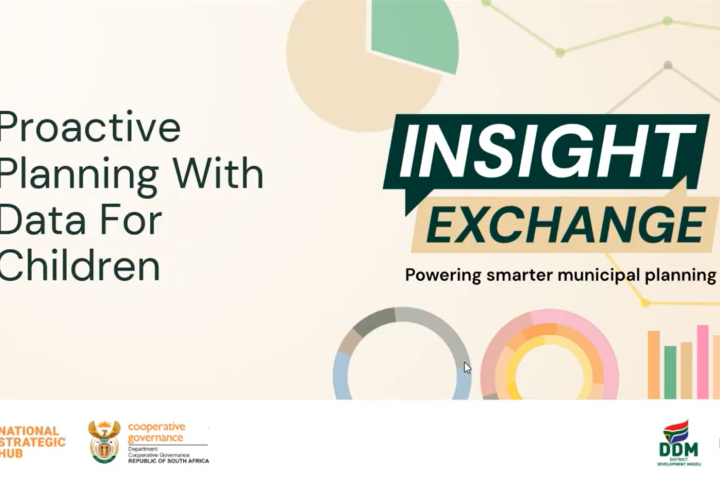Proactive planning with data for children

Children make up a third of South Africa’s population. Yet in municipal planning, they are often invisible. Service standards, data systems, and policy frameworks tend to assume a generic household or adult user. The result is a mismatch: children’s needs (whether for safe transport, adequate sanitation, or secure housing) are sidelined, despite being central to community well-being.
The September 2025 edition of the Insight Exchange webinar, convened by the Department of Cooperative Governance and Traditional Affairs, focused on how child-centred data can sharpen planning and service delivery. The Insight Exchange series explores how data improves planning and service delivery.
Dr Katharine Hall, Children's Institute Senior Researcher, presented data from the Children Count project which she leads. Children Count is a permanent data project of the Children's Institute. It is an interactive online resource with 40+ indicators on the situation of children, disaggregated by province, age, sex, race, income quintile, and settlement type. The statistics can be used by policymakers, researchers, child rights advocates, the media and all those who work for the improvement of children's lives.
Children’s lives are deeply shaped by local government decisions, and there is both a moral and developmental imperative to integrate them into planning. The opportunity cost of failing to do so is immense: preventable injuries and health risks, avoidable learning gaps, and poorer long-term social and economic outcomes.
Watch Dr Hall's presentation, and read the session provocation piece.
